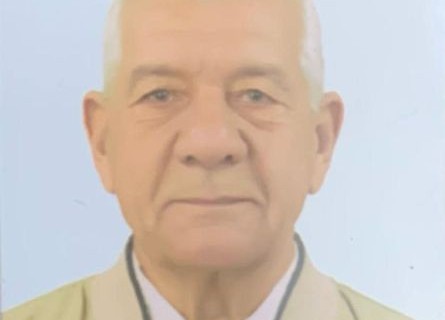TARIQ AL-AZZAWY
TARIQ AL-AZZAWY (IRAQ)
FIAMMA DEL RICORDO
Crebbe impetuoso, uno spirito giocoso viziato dall’indulgenza. Mai ascoltò un avvertimento, né la sconfitta piegò mai la sua volontà. I consigli dei saggi gli passavano accanto come il vento, senza lasciare traccia.
Abbandonò la scuola elementare sul finire del percorso, indifferente alla perdita, perché cos’è la perdita se non perdita stessa? Trovò rifugio nel mercato—un mondo di fatica e di svago—dove si abbandonò al ritmo della vita, senza rimpiangere il passato né desiderare ciò che avrebbe potuto essere.
Si guadagnava da vivere spingendo un carretto di legno, vendendo dolciumi. Con il tempo, il carretto divenne parte di lui, e lui parte di esso, abituandosi al suo peso. Vagava per le strade, chiamando i passanti con una voce così calda, così melodiosa, che si armonizzava con l’eleganza del suo vestire—un’eleganza che suggeriva un passato di agio e privilegio.
I suoi dolci erano un ponte, un legame che lo teneva ancorato alla vita, alla gente—soprattutto ai bambini delle scuole, che li gustavano con gioia. Ma il suo carretto, in netto contrasto, era un simbolo di fatica: traballante, con ruote consunte dal tempo, che oscillavano su assi fragili, gemendo con un lamento stridulo, attirando sguardi di curiosità, fastidio e scherno.
Quel giorno, la strada si riempì di gazzelle leggere—giovani donne che avanzavano con grazia regale, appena uscite dal cancello del loro liceo. Inondavano il marciapiede, diffondendo nell’aria risa fresche e movimenti vivaci.
All’inizio, lei non lo notò. Ma nel momento in cui allungò la mano per pagare, i suoi occhi incontrarono i suoi. Le dita esitarono—e anche le sue mani. Un attimo fugace. Eppure, sotto lo sguardo curioso delle compagne, sotto il peso della sua stessa, insondabile immobilità, lei posò con dolce esitazione le monete sul suo palmo, e lui le accolse con un pudore nuovo, sconosciuto.
Lei non era la sua amata—no, non poteva esserlo. Un tempo, quando erano vicini di casa, prima che la sua famiglia partisse, lei era solo una bambina, e lui un bambino accanto a lei. Eppure, già allora, quando un compagno osò infastidirla, lui lo gettò nel fango. E quando un altro le sussurrò parole indegne, fece la stessa fine.
Una volta lo dichiarò, forte affinché tutti udissero: “Chiunque osi avvicinarsi a lei, lo spezzerò.” E così, per sua stessa volontà, lei divenne terra sacra.
Quando le altre ragazze le chiesero: “Lo conosci?”
Lei rispose, semplice e con riverente dolcezza: “Sì. È l’uomo più nobile che io abbia mai visto.”
Non sapeva, non con esattezza, cosa quelle parole avessero acceso dentro di lui—quale brace avessero riacceso, quale ferita avessero riaperto. Ma qualcosa era stato consumato nelle profondità della sua anima. Altrimenti, da dove veniva quel bruciore?
Accostò il carretto e coprì i dolci con un sottile panno bianco—una silenziosa dichiarazione di chiusura. Poi, lasciandosi cadere sullo sgabello traballante, rimase lì, stanco, scomponendo nella mente quell’istante, setacciando le parole dette, i pensieri rimasti in sospeso:
“… Ma io restai fermo, e tu camminasti oltre.”
Corri! Perché chi corre supererà sempre chi cammina.
Ma correre richiede spazio.
E in quest’epoca, esistono modi per saltare attraverso il tempo.
Una brace ravvivata, una ferita di nuovo aperta.
Volse lo sguardo su di sé—sullo sgabello, sul carretto, sulle gazzelle che danzavano leggere nella loro giovinezza. Poi su di lei—un dolce raffinato e irraggiungibile, che si dissolveva in lontananza, sparendo al margine del suo sguardo. Ora, di lei non restava che un lieve fremito delle dita, un gesto simile a candeline su una torta di compleanno, e un ultimo bagliore nei suoi occhi, una freccia silenziosa scoccata da un arco di luce.
Mormorò, come in un’invocazione:
“Ogni fine esige un nuovo inizio.”
( Traduzione in italiano a cura della redazione)

